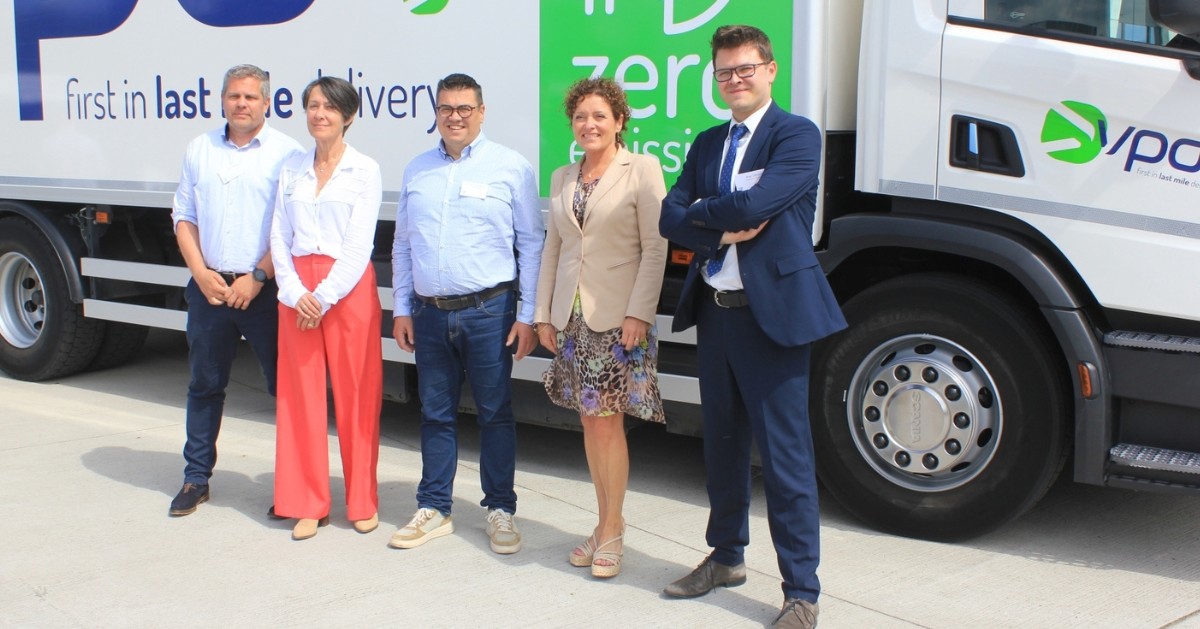What does the project involve?
Dirk: VIAVIA stands for "Vrachtvervoer Intelligent Aanpassen en Vergroenen via een Integrale Aanpak," which translates to “Adapting and Greening Freight Transport through an Integrated Approach” in English. It focuses on the transition to zero-emission urban logistics. In collaboration with other partners such as the University of Antwerp, DHL Express, and Colruyt Group, VPD plays an active role in reducing emissions and improving urban livability.
What are the key steps?
Dirk: The focus is on first- and last-mile logistics, which are often the most polluting and complex parts of the process. We want to promote electric cargo bikes and electric vans. One example is the use of zero-emission vehicles weighing 4.25 tons, which can be driven with a regular driver's license. Legislative adjustments are crucial so that these vehicles can be easily used in cities. Furthermore, investments in sustainable solutions must better align with the needs of businesses. At VPD, we take these recommendations very seriously. For example, we have expanded our fleet with electric vehicles and are actively working on smart logistics hubs that make our urban deliveries more eco-friendly and efficient.
What role do the authorities play?
Dirk: Collaboration with authorities is essential. Without their support, such as adapted regulations and subsidies for electric vehicles and charging infrastructure, the transition would be much slower. Authorities need to ensure that businesses can make the switch to sustainable transport without being economically penalised.
What about urban logistics planning?
Dirk: We advocate for broader delivery windows for zero-emission vehicles, as they are quieter and cause less disruption. Delivering earlier in the morning or later in the evening has a smaller impact on the environment and the neighbourhood. It is also necessary to establish a legal framework that ensures these vehicles are as efficient as traditional trucks, avoiding unnecessary extra kilometres or traffic jams. This way, we maintain a balance between economic feasibility and environmental sustainability.
And energy supply?
Dirk: Without adequate charging infrastructure, it won’t work. We collaborate with energy companies to strategically place charging stations and use energy management solutions, such as batteries. Logistics hubs play a key role by using renewable energy and building a robust network that is future-ready.
What are the next steps?
Dirk: We have already conducted pilot projects and made policy recommendations. The next step is to translate these into concrete action plans, supported by the Flemish government. We are also continuing to invest in infrastructure and encouraging businesses to transition to sustainable logistics.
Proud to be a pioneer
Dirk: VPD plays a key role in this project, not only by participating in working groups but also by taking concrete steps within our own operations. We have already invested in electric transport and smart logistics solutions within our network. We don’t just participate in discussions; we also show in practice how sustainable urban logistics can be achieved. We are convinced that the transition to sustainable logistics is a joint effort between businesses, governments, and citizens. VPD is proud to be a pioneer, and we remain committed to working towards a greener future.
